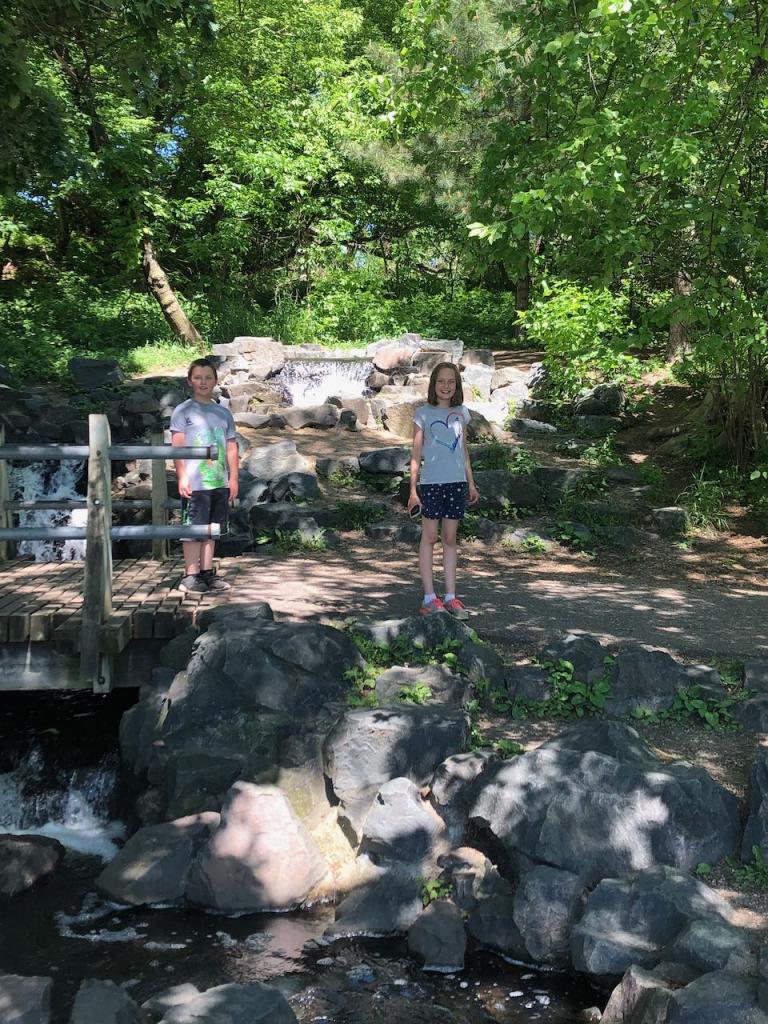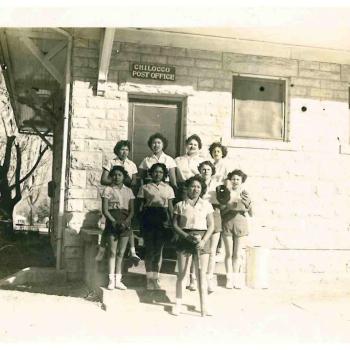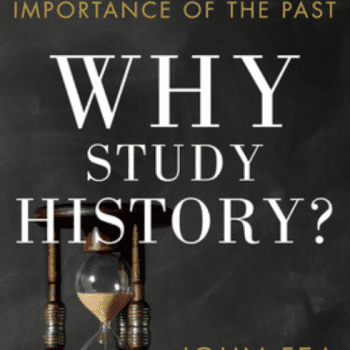Dear future Chris,
Greetings from the middle of May 2021, the end of a week in which those of us who have been vaccinated against COVID-19 were suddenly told that we no longer needed to wear masks. I know that people are still dying of the disease, but it does feel like we’ve reached a turning point.
So whenever you’re reading this, I hope that coronaviruses have gone back to causing no ailment more severe than the common cold. I hope that this pandemic is as distant a memory for you as polio and influenza were for earlier generations.
But I do hope you remember it. And knowing that it’s in the nature of human beings — even historians — to forget, I thought I’d jot down some reminders: what you think you’ve learned from a pandemic.
COVID church was terrible.
Don’t get me wrong: you greatly appreciated the boundless energy and creativity of clergy and laity who tried to figure out how to do worship, fellowship, formation, and other kinds of ministry without meeting in person. You even told yourself that streaming or drive-in versions of church might expand its reach and impact.
But fourteen months after the last time you could take Communion and sing in the choir, you know just how terrible online church is. Terrible for you, who thinks about liturgy the same way Philip Jenkins does, but especially for your children, who have now spent about 10% of their lives “going to church” on YouTube, where worship seems to them like a much less interesting and entertaining version of their favorite clips by celebrities you’ve never heard of.
COVID education was only marginally better
You work at a small university that hosted 85% of its 2020-21 classes in person (and yet maintained less than a 1% COVID positivity rate), but you spent the second half of spring 2020 teaching all your classes online, you learned to integrate Zoom into your face-to-face instruction in 2020-21, and now you’ve even talked yourself into spending six weeks this summer teaching a virtual version of your European travel course on World War I. There’s a part of you that values the disruption of traditional practices as a source of forced creativity, that believes that discussion forums, digital timelines and StoryMaps, webisodes and podcasts, and even Zoom breakout rooms can work well for some students.
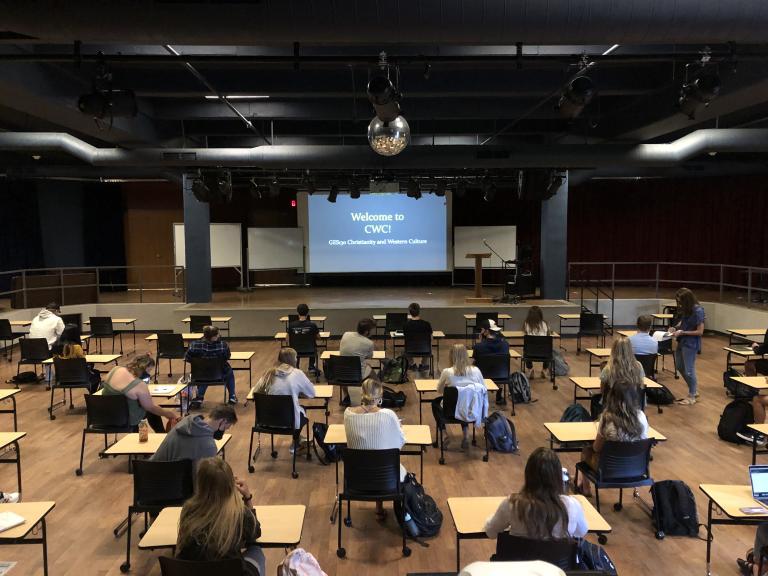
But most of you resents teaching in even a “modified hybrid” fashion. You’ve been staring at half-recognized half-faces for months now, reading far too much into every furrowed brow and widened eye and getting to know far too little of the people behind the masks. As you stand at a distance from students who can seem more like cardboard cutouts than persons, you’ve projected onto them your doubts that this version of Christian higher education is actually making them more “whole and holy.” So you’ve told yourself that most college learning has always taken place outside of class — in reading, research, review, and writing that students do on their own and with each other — only for COVID to underscore that “outside of class” is where students deal with emotional, relational, financial, and spiritual problems more pressing than the academic challenges you’ve assigned.
“Back to normal” is overrated
So you’ve hoped to hear that things will be back to normal in Fall 2021… only to admit that you see more clearly than before COVID that “back to normal” is not always to be desired. Far too prematurely, you blogged about this back in April 2020, acknowledging a bipartisan desire for “normalcy” but urging readers to
think twice before giving in to that understandable instinct.
If anyone should be ready to discard old normals for new ones, it’s a people who are spending this weekend contemplating the death of the Son of God and then celebrating his dramatic resurrection.
So you don’t really want post-COVID life to look just like pre-COVID life. By circumstance more than choice, you’ve learned to spend less time at work and more time at home, where you’ve gotten to know both your family and your neighbors in new ways. You’ve seen more clearly the importance of public goods like libraries and parks. You’ve discovered the pleasures of hiking and gardening and rediscovered the quiet joys of everything from reading fiction and playing board games to practicing fixed-hour prayer.
Be grateful
But you’ve also realized that most of what you’ve enjoyed about the past year depended on things that you take for granted but are not available to many others. First, while millions of Americans lost their jobs, yours continued to provide you with both independence and infrastructure, flexibility and stability, meaningful work and restful leisure. That job also ensured you and your family reliable access to America’s health care system, whose significance and inequities have never been more apparent.
You’ve realized how much you depend on others, and they on you. You’ve struggled, doubted, grumbled, grown weary and frustrated… but never by yourself. COVID may have frayed the imagined bonds of nation to the breaking point, but you’ve never felt too alone amid the embodied communities of family, neighborhood, and workplace. And even the disembodied communities of virtual church, social media, and this blog have helped close the social distance you’ll always associate with this pandemic.
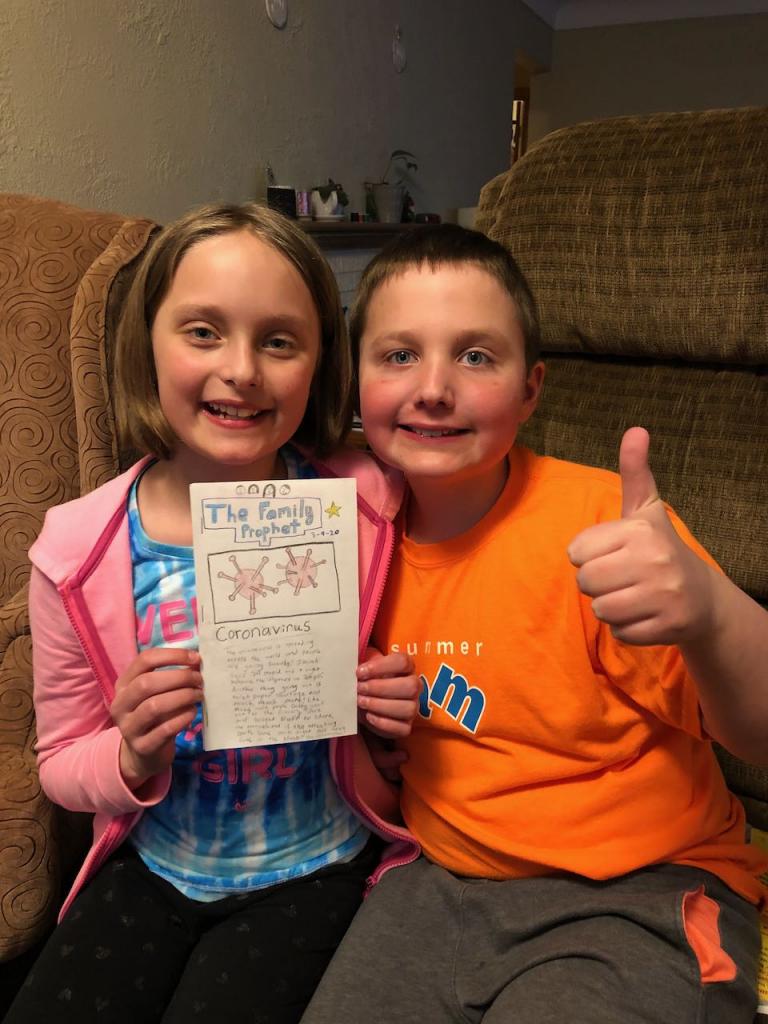
And now, thanks to the tireless work of scientists, researchers, nurses, physicians, pharmacists, and public health experts you’ve never met, you’ve started to enter the post-COVID part of your life. So above all else, remember that you did so in gratitude.
Grace and peace,
Chris



